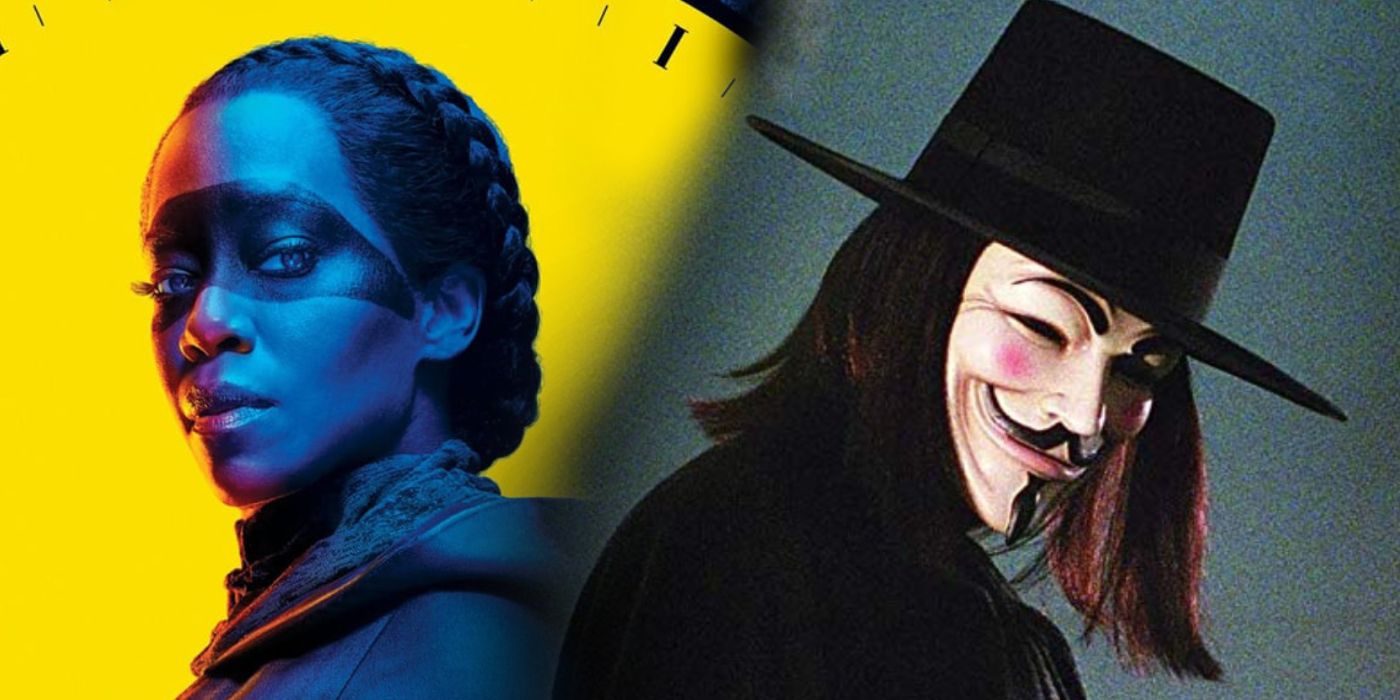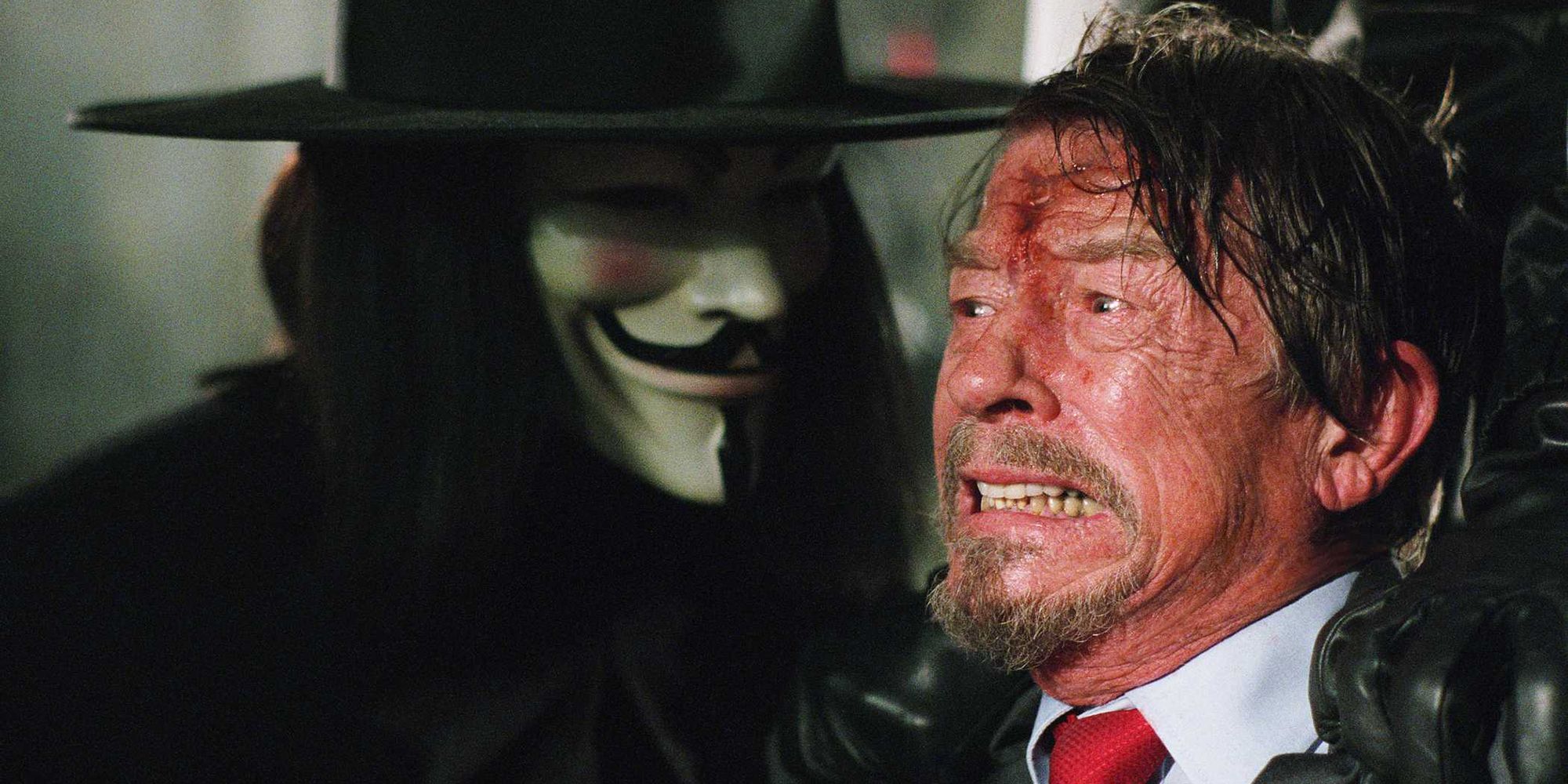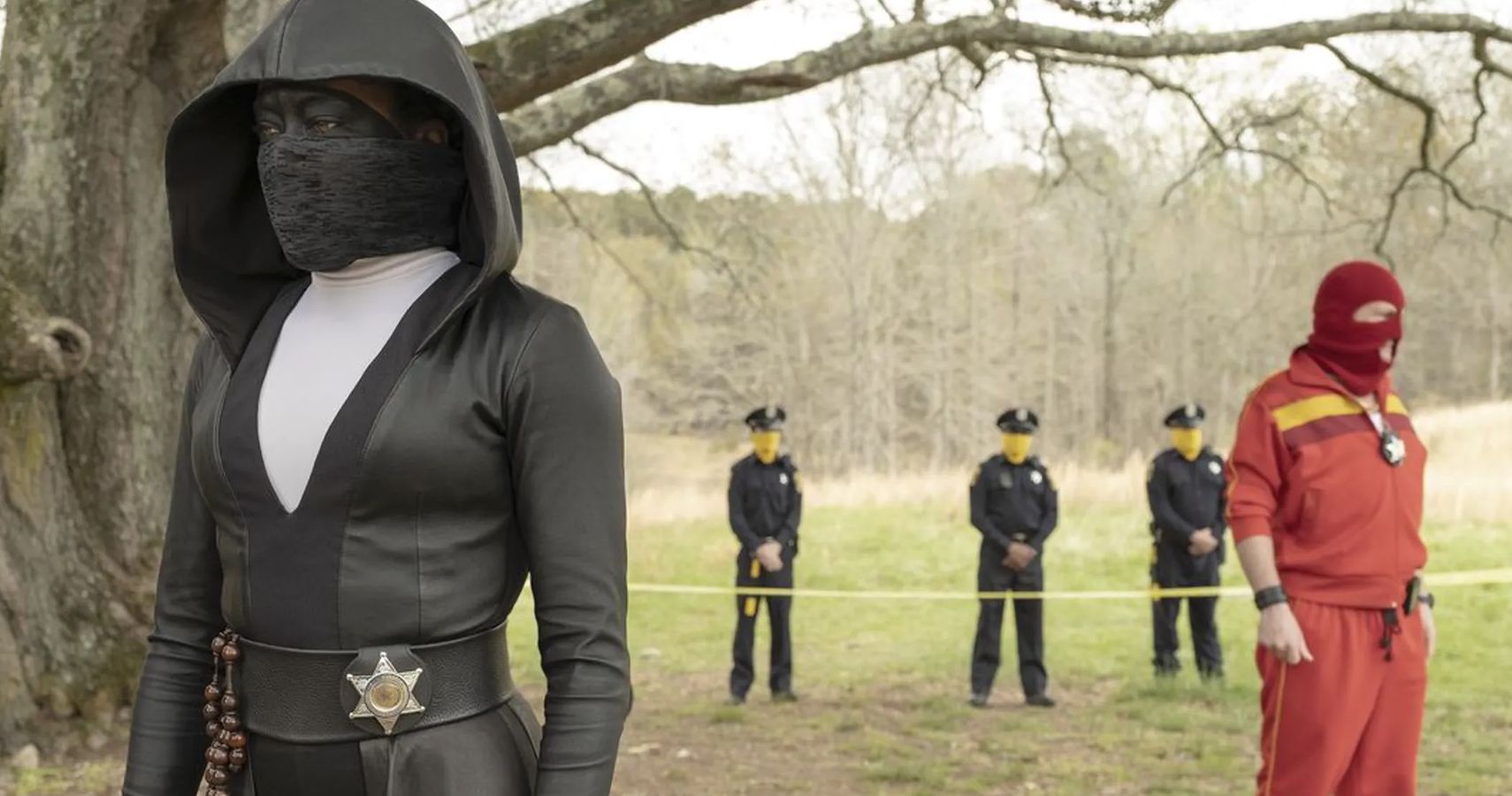HBO recently set the world of small-screen comic book adaptations on fire with Watchmen. This new take on the world of Alan Moore and Dave Gibbons' politically charged superhero satire is everything it should have been and so much more -- all but leaving the 2009 film adaptation in the dust. Moore's feelings towards adaptations of his work aside, HBO's Watchmen more than did right by his and Gibbons' classic DC comic book. With that in mind, it seems like the network might be the perfect place to retell another one of Moore's classic tales: V for Vendetta.
Credit where it's due, James McTeigue and the Wachowskis' 2006 film adaptation of Moore and artist David Lloyd's '80s DC/Vertigo Comics title V for Vendetta is actually a pretty great movie -- definitely one of DC's better R-rated films, and easily the best movie based on Moore's work. In fact, what McTeigue and the Wachowskis did with V for Vendetta is actually very similar to what Damon Lindelof did with HBO's Watchmen.
The film reworked the graphic novel's story to make it more relevant to modern times, enlisted top-level performers and, most importantly, didn't shy away from the comic's overarching theme of how a complacent populace allows fascist governments to rise. Still, as a cinematic release trying to capture the widest possible audience, there were definitely a few things the movie did shy away from -- things that would be much more at home in a television adaptation.
As a preface, Alan Moore is not the be-all and end-all when it comes to adaptations of his work. After all, if Moore got his way, the excellent HBO version of Watchmen wouldn't exist at all. But comics, at the end of the day, are an inherently collaborative medium. And Moore's collaborators, like Gibbons and Lloyd, have been far more accepting of the Watchmen and V for Vendetta adaptations, respectively. That being said, Moore has brought up some valid criticisms of the existing V for Vendetta adaptation.
The big thing about the original comic that the 2006 film shies away from is its central conflict of anarchism versus fascism -- a no-holds-barred battle between two ideologies that could not be further from one another. Rather than an anarchist, the film portrays protagonist V as a freedom fighter. The film also goes to great lengths to humanize V and make him a slightly more conventional hero than the comic book version, who is deliberately kept enigmatic and morally gray. Co-protagonist Evey Hammond was given a similar transformation in the film, portrayed as older and more put together than she was in the comic.
As Moore points out, the antagonistic fascist regime V is battling -- Norsefire -- is also undeniably de-fanged in the film adaptation. Norsefire is still portrayed as a totalitarian government bent on ridding England of LGBTQIA+ people and non-Christians. In the comic, however, Norsefire also actively engages in ethnic cleansing -- something the film very much downplays. Moreover, whereas the organization's key members were actually rather complex and fleshed out in the comic, they are mostly relegated to your standard Nazi-esque baddies in the film due to time constraints.
Speaking of V and Norsefire, while V for Vendetta is set in England, the film's portrayal of this conflict is highly Americanized. Moore originally wrote V for Vendetta as a response to Thatcherism, a political ideology that rose to prominence in the United Kingdom during Conservative Party leader Margaret Thatcher's time as Prime Minister. The film, meanwhile, takes its cues from the geopolitics of George W. Bush's time as President of the United States in the early-to-mid 2000s. It does this very well, mind you, and -- as mentioned before -- makes the story more relevant to the modern day. Even so, taking an inherently British story and reworking it to center around American politics was an odd decision.
All things considered, V for Vendetta is a good movie. That said, there is always room for improvement, because as bold as it could be at times, the film still feels like a safer, more sanitized version of Moore and Lloyd's text. And if Watchmen is anything to go on, HBO might just be the perfect place to bring such comics to life in a faithful, quality manner -- especially considering the fact that, in general, comic book adaptations made for TV tend to be more gutsy than those made for film.
Watchmen is bold; it is unapologetic in its political edge, portraying the harsh realities of both the past and present of American politics and social issues. Despite going against Moore's wishes by making the show in the first place, it's clear Lindelof has a lot of love and respect for the writer and his work. Affectionately referring to the original Watchmen comic book as the "Old Testament," Lindelof took the groundwork laid by Moore and Gibbons and built upon it in new ways at HBO. If the network could find someone with that same level of love and respect for V for Vendetta, it could have yet another definitive Alan Moore adaptation on its hands. (Perhaps such a series could take another cue from HBO's Watchmen and serve as a sequel detailing the aftermath of the insurrection that takes place after Evey inherits V's identity.)
In addition to allowing for far more daring, adult content than your average comic book film or TV show, HBO also makes sure creators have ample money and resources to bring their visions to life. This is why V for Vendetta is so perfect for HBO, as opposed to another channel or service like AMC or Netflix.
If handled correctly, an HBO adaptation could not only portray a more faithful version of the enigmatic anarchist known as V and his violent battle against the fascist Norsefire, but do so in a manner more relevant to modern-day British politics, not unlike what Lindelof's Watchmen did for American politics. What's more, the television format allows character arcs and development to flourish like they did in the comic -- without being limited by the two-to-three-hour runtime films generally have to work with.
Any way you slice it, it seems like V for Vendetta is a perfect fit for premium TV. And with the issues addressed in the comic book still relevant over three decades later, the timing could not be more perfect for a network like HBO to reboot this political thriller in a manner more in line with Moore and Lloyd's original vision.



